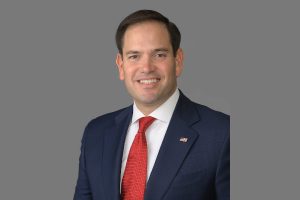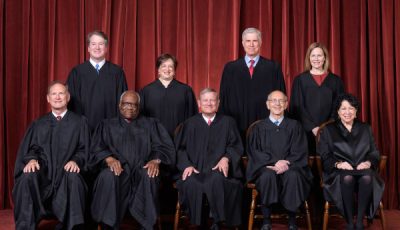Rubio Introduces Awful Section 230 Reform Bill, Because Why Not
 WASHINGTON — Sen. Marco Rubio (R-Fla) introduced last week yet another bill intended to reform Section 230 of the Communications Decency Act of 1996 and hold tech platforms accountable for alleged spates of censorship.
WASHINGTON — Sen. Marco Rubio (R-Fla) introduced last week yet another bill intended to reform Section 230 of the Communications Decency Act of 1996 and hold tech platforms accountable for alleged spates of censorship.
Rubio, a former presidential candidate for the Republican ticket during the 2016 primary season, intends to etch his name among the Republican and Democratic lawmakers looking to hold companies like Facebook and Twitter accountable for one reason or another.
“Big Tech has destroyed countless Americans’ reputations, openly interfered in our elections by banning news stories, and baselessly censored important topics like the origins of the coronavirus,” Rubio said in a press release. “It is absurd that these massive companies receive special protections through Federal law, even as they tear our country apart. No more free passes — it is time to hold Big Tech accountable for their actions.”
Mike Masnick, a contributor to Techdirt.com, wrote in response to Rubio’s proposal that “the actual bill is a clusterfuck of bad ideas.” If you follow the evolution of Section 230 reform bills, you’ll agree that Masnick isn’t that far off calling the latest a clusterfuck.
The bill is known as the “Disincentivizing Internet Service Censorship of Online Users and Restrictions on Speech and Expression” or “DISCOURSE” Act for short. This not-so catchy name captures the essence of the proposal, too.
According to the bill text, Section 230 third-party liability protections are stripped away for any internet platform that controls a dominant market share of a specific segment and “engages in a content moderation activity that reasonably appears to express, promote, or suppress a discernible viewpoint for a reason not protected from liability under subsection (c)(2), including reducing or eliminating the ability of an information content provider to earn revenue. ”
In plain English, a legal measure like this would prohibit platforms like YouTube, Twitter, and Facebook from removing users who violate terms-of-service agreements. Additionally, these platforms can’t demonetize hateful content. Rubio’s bill, like others from the right wing, purport that protecting speech online from liberal big technology companies is the only suitable solution to counter Section 230. However, the liability provisions laid out in the original law grant privately owned internet platforms the First Amendment right to self-regulate and associate with a specific class of users who comply with terms of service.
Here, the confused senator from Florida is once again attempting to establish a legal standard for regulation that would essentially classify internet computer services and other providers as common carriers or public utilities. While a case can be made for the treatment of an actual ISP as a common carrier, there’s no legal or economic justification to consider a platform like Google or a social media network as such.
If these are the standards that Rubio wishes to hold all internet businesses, does he want the government to deal with a platform like Pornhub as a “common carrier” in the eyes of the law?
Rubio’s legislation further proposes reform to narrow the class of content that’s exempt from potential pushback and enforcement of a platform’s terms. Platforms are only permitted “any action voluntarily taken in good faith to restrict access to or availability of material that the provider or user has an objectively reasonable belief is obscene, lewd, lascivious, filthy, excessively violent, promoting terrorism or violent extremism, harassing, promoting self-harm, or unlawful, whether or not such material is constitutionally protected.”
If Rubio’s bill becomes law, this measure specifies that platforms must have an unbiased and objective sample of proof that certain content is offensive. From the point of view of the lewd content provisions, this potential change to the law would require platforms to furnish objective proof that something is objectionable, despite constitutionality protected status. Ironically, the existing form of the law permits a platform the ability to regulate speech in accordance with its corporate culture and is further permitted the right to protect forms of speech a public utility or a government organization might view as “objectionable.” This includes porn accounts on Twitter and Reddit. Or, even the protection of porn tubes and premium platforms like OnlyFans.













